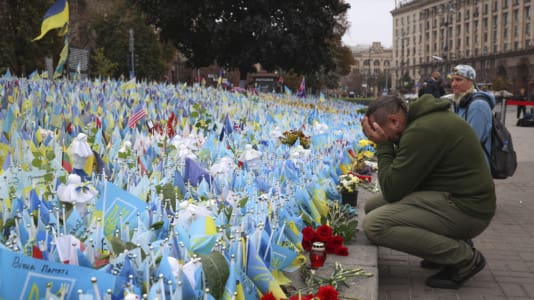A rising number of Ukrainian refugees in Berlin are planning to make the city their permanent home, according to a survey conducted at the Tegel emergency shelter, where 65 percent of respondents expressed a desire to settle in the German capital.
The figure marks a significant shift from a year ago when most planned to return to Ukraine after the war.
“We see that the picture is turning,” said Mark Seibert, president of the State Office for Refugee Affairs (LAF), to the German Press Agency, as cited by Welt. “Currently, a majority say: ‘We’re staying here. We’re getting ready.'”
Seibert noted an increased interest in German language courses and job opportunities among the Ukrainian community, reflecting their growing intention to integrate. A recent job fair held at the Tegel accommodation facility reportedly saw strong participation from Ukrainian refugees eager to find employment.
Since the start of Russia’s invasion of Ukraine in February 2022, tens of thousands of Ukrainians have sought refuge in Berlin, with estimates suggesting that between 50,000 and 60,000 Ukrainians currently live in the city.
Around 9,000 of them reside in state-run accommodations managed by the LAF; some 3,000 are housed in the Tegel emergency shelter, while others have found private housing or been taken in by local residents.
Ukrainians benefit from a distinct legal status in Germany, different from other asylum seekers. They are permitted to work and have access to healthcare, social benefits, and language courses.
The trend in Berlin is also seen across the wider country, with consecutive annual polls showing a greater desire among newcomers to stay in Germany indefinitely.
A survey conducted last year by the IAB research group showed that 44 percent of Ukrainian refugees planned to remain, up from 37 percent in the previous year.
Despite the high enrollment in language courses — three-quarters of working-age Ukrainian refugees attend or have completed them — language proficiency has remained a significant hurdle with just 8 percent in the last national poll reporting to have a “good” or “very good” understanding of the German language.
This was reflected in the employment rate, with just 18 percent of working-age refugees in a regular job.
As of the latest update on the United Nations High Commissioner for Refugees (UNHCR) website at the beginning of November, some 1.22 million Ukrainians have been registered in Germany since the start of the war.






